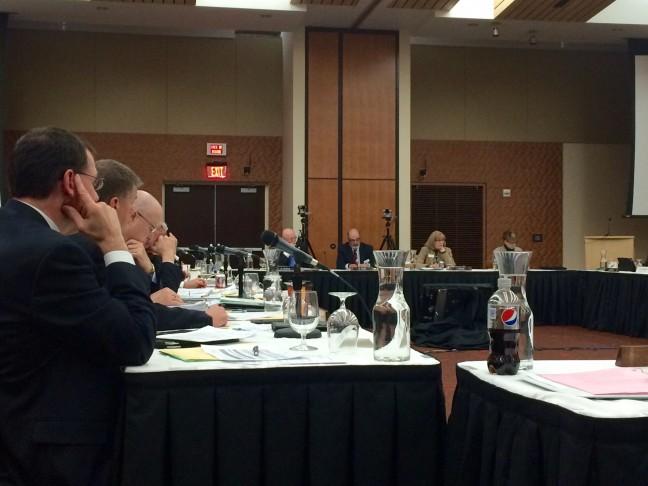Officials passionately defended University of Wisconsin System research, despite legislative attempts to ban the sale of human organs and fetal body parts on which many UW labs rely.
The UW System Board of Regents gathered at UW-Whitewater for their September meeting to discuss critical topics such as fetal tissue research, tenure and UW Colleges’ post-budget reorganization.
The board expressed their disappointment by the absence of any amendments in an Assembly bill which limits fetal tissue research, but Regents President Regina Millner said she believes a resolution to oppose the bill before the Senate takes action is “untimely.”
“Instead of opposing [the bill] in a resolution today, we should encourage efforts to review our ethical standards to confirm that they are in fact the highest ethical standards, and the most stringent processes in the country for the acquisition and use of fetal body parts,” Millner said.
UW-Madison Chancellor Rebecca Blank gave an impassioned speech at the meeting.
Blank stressed the importance of research at UW-Madison and addressed how its academic strength and reputation will be impacted should the bill become law.
“We attract a large number of people because of the breadth and scope of our research, [people] who come here because they want to be part of those teams,” Blank said. “If a significant component of those teams disappear from the university, others will choose not to be here as well.”
Blank also discussed the importance of adhering to ethical standards of research.
UW is a flagship campus of biomedical research, and scientists at the university do interdisciplinary work that, according to Blank, “truly characterizes the strength and the reputation of the University of Wisconsin.”
Blank said this reputation is maintained by following strong ethical codes in the process of research.
“We are very adamant at the University of Wisconsin about following those regulations, following those laws and in fact we go beyond the requirements in federal law regulation, conducting additional internal oversight of the research that we do on campus involving fetal tissue,” she said.
But anti-abortion advocates have spoken out in support of bans on fetal tissue research. Pro-Life Wisconsin legislative director Matt Sande said in a statement his group fully supports the bill, without amendments.
“The preborn aborted child did not consent to his or her abortion, and certainly did not consent to his or her experimentation,” Sande said.
The matter of research proved to be a deeply personal and emotional issue that caused many regents to relate to their own experiences, including Regent Janice Mueller, who was diagnosed with cancer earlier this year. Mueller shared her deep concern about cancer patients and her belief that research cures diseases.
The regents also discussed how to cope in the wake of a $250 million slash to state funding — the largest in recent history — that goes into place this academic year.
UW System President Ray Cross said the system is working with legislators to make sure UW schools have the support they need.
Cross said the system is still working on pieces that didn’t get into the budget, including possible legislation that would enable Wisconsin to enter into a federally-recognized Midwestern state authorization reciprocity program.
To deal with the blow of the cuts, the UW System is also taking more in-depth looks into information technology, human resources and procurement budgeting. Cross said there might be consolidation, centralization and distribution of responsibilities to save more money for the schools.
“Ultimately we are trying to focus more on outputs rather than inputs,” Cross said. “Rather than telling campuses how to do something, our goal is to say these are the output expectations and agree with them on that, and focus on the outputs.”


